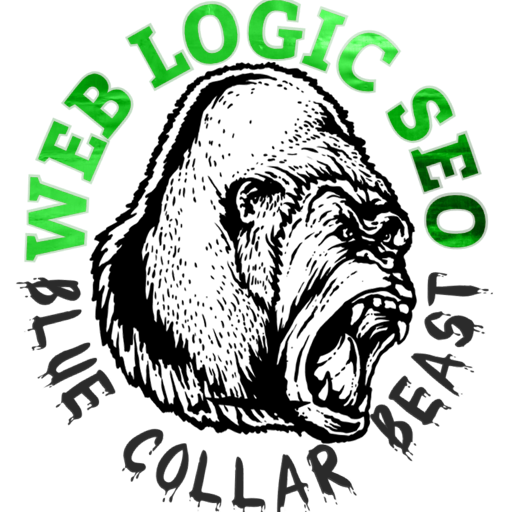ANSWERS TO THE MOST COMMON
Business SEO FAQ
Web Logic SEO
How do changes in Google’s algorithm affect my SEO strategy?
Changes in Google’s algorithm can significantly affect your SEO strategy. If the algorithm is updated to prioritize certain types of content or de-prioritize others, you might need to adjust your content strategy. Similarly, if Google changes how it evaluates backlinks, your link-building strategy might need to change. Staying informed about these changes and adjusting your strategy accordingly is key to maintaining your SEO performance.
What are the risks of black-hat SEO tactics?
Black-hat SEO tactics are techniques that go against search engine guidelines and are used to get higher search rankings. Risks include penalties from search engines, decreased search ranking, or being removed from search results entirely.
How can I measure the ROI of my SEO efforts?
To measure the ROI of your SEO efforts, you can use tools like Google Analytics to track organic traffic, conversion rates, and the behavior of visitors to your site. You can also use Google Search Console to track your site’s search performance.
Can you explain the importance of meta tags for SEO?
Meta tags are snippets of text that describe a page’s content and they don’t appear on the page itself, but in the page’s code. They can influence click-through rates from search engines. Important meta tags for SEO include the meta title and meta description tags, which can affect how your page appears in search engine results.
How often should I update my website content for optimal SEO?
There’s no set rule for how often you should update your website content. However, regularly updated content is seen as one of the best indicators of a site’s relevancy, so it’s beneficial to keep your content fresh and up-to-date. This doesn’t necessarily mean changing your content entirely, but making sure that it remains accurate and relevant.
What is the role of site speed in SEO?
Site speed is crucial in SEO as it affects user experience. Google considers site speed as a ranking factor because a faster loading website provides a better user experience than a slow one. Users are likely to leave if a site doesn’t load quickly, which can increase your bounce rate and negatively impact your SEO.
What are SEO best practices I should follow?
SEO best practices include:
– Doing keyword research to understand what your audience is searching for
– Optimizing your titles and meta descriptions
– Using relevant keywords in your content
– Using header tags to structure content
– Optimizing images with alt text
– Building high-quality backlinks
– Regularly updating content
– Ensuring your website is mobile-friendly
– Using HTTPS for security
– Making your site easy to navigate
How can I use SEO to convert visitors into customers?
To use SEO to convert visitors into customers, ensure your website is easy to navigate, has clear calls-to-action, and provides valuable, relevant content. Also, make sure your site loads quickly and is mobile-friendly.
How should I handle duplicate content?
Handle duplicate content by using 301 redirects, the rel=canonical attribute, or by simply making sure all of your content is unique. Google penalizes duplicate content because it can create a poor user experience.
How can I reduce the bounce rate on my website for better SEO?
To reduce bounce rate, ensure your website loads quickly, is easy to navigate, and provides valuable content. Also, make sure your content matches the user’s intent when they click on your site.
What is semantic SEO and how can I leverage it?
Semantic SEO involves optimizing content based on meaning and relevance rather than just keywords. This can be done by creating high-quality content that answers common questions from users and using related keywords and topics.
How do I perform keyword research?
Keyword research involves identifying the terms that people enter into search engines. You can use tools like Google Keyword Planner, Ahrefs, or SEMRush to find keywords related to your business and industry.
What is a Google penalty and how can I avoid it?
A Google penalty is a punishment by Google when they believe your site has violated their webmaster guidelines. It can lead to a drop in rankings or your site being removed from search results. You can avoid it by following SEO best practices and not engaging in black-hat SEO tactics.
How does mobile optimization affect SEO?
Mobile optimization ensures your website looks and performs well on mobile devices. As more people use mobile devices to access the web, mobile optimization is increasingly important for SEO.
What are long-tail keywords and why are they important?
Long-tail keywords are longer and more specific keyword phrases. They are important because they’re often less competitive than shorter, more general keywords and can attract more targeted traffic.
How do backlinks affect my site’s SEO?
Backlinks are links from other websites to your own. They are important because they signal to search engines that other websites vouch for your content, which can improve your site’s ranking.
How does social media impact SEO?
Social media can impact SEO indirectly. While social shares may not directly improve rankings, they can increase visibility and traffic to your website, which can improve SEO.
What type of content should I create for better SEO?
For better SEO, create high-quality, unique content that provides value to readers and includes relevant keywords. This could be blog posts, articles, whitepapers, videos, or infographics.
How does Google’s algorithm work?
Google’s algorithm is a complex system used to retrieve data from its search index and instantly deliver the best possible results for a query. It considers hundreds of factors, like relevance, usability of pages, and expertise of sources.
How does local SEO work and how can it benefit my business?
Local SEO involves optimizing your online presence to attract business from local searches. It can benefit your business by making it easier for local customers to find you. This includes optimizing your Google My Business listing and getting positive customer reviews.
What is the difference between organic and paid results?
Organic results are the listings of web pages returned by the search engine’s algorithms. Paid results, on the other hand, are advertisements and appear at the top of SERPs.
What are the best SEO tools to use?
Some popular SEO tools include Google Analytics, Google Search Console, Ahrefs, SEMRush, Moz, and Yoast SEO.
How can I make my website more SEO-friendly?
To make your website more SEO-friendly, ensure it loads quickly, is easy to navigate, uses relevant keywords in content and meta tags, is mobile-friendly, and provides a good user experience. Google Search Console provides a way to track these areas – and more.
Should I hire an SEO agency or do it myself?
Whether to hire an SEO agency or do it yourself depends on your budget, time, and SEO knowledge. If you’re new to SEO, it might be worthwhile to hire an agency. However, there are also many resources available to learn SEO yourself.
How do I know if my SEO strategy is working?
You can use tools like Google Analytics and Google Search Console to monitor your website’s traffic, see which keywords are driving traffic, check your website’s ranking on SERPs, and identify areas for improvement.
What is on-page and off-page SEO?
On-page SEO involves optimizing individual pages on your website (like using keywords in your content and meta tags). Off-page SEO involves actions taken outside of your website to improve its search engine rankings, like earning backlinks from other websites.
How can I improve my website’s ranking on search engine results pages (SERPs)?
Improving your website’s SERP ranking involves various strategies like: optimizing your website’s content for keywords relevant to your business, improving your website’s loading speed, ensuring your website is mobile-friendly, getting high-quality backlinks from reputable websites, and providing a great user experience.
How long does it take to see results from SEO?
The time it takes to see results from SEO efforts varies greatly depending on a number of factors, including the state of your website when you start optimizing, the industry you’re in, the competition for your target keywords, and the resources you’re putting into SEO. It’s important to note that SEO is a continuous process and not a one-time task, so your rankings continue to improve as you put more work into optimizing your website. Unlike paid advertising, which stops bringing in traffic as soon as you stop paying, the traffic from SEO continues for months or even years after you’ve completed the optimization.
What is SEO and why is it important for my business?
SEO, or Search Engine Optimization, is the practice of improving a website to increase its visibility when people
search for products or services related to your business in Google, Bing, and other search engines. The better
visibility your pages have in search results, the more likely you are to garner attention and attract prospective
and existing customers to your business.
What are keywords and how do I use them for SEO?
Keywords are the words and phrases that people type into search engines. To use them for SEO, you would
incorporate them into your website’s content, meta tags, URLs, and alt text in a natural and meaningful way.
Keyword research tools can help identify the most effective keywords for your business.
What is SEO?
SEO Stands for Search Engine Optimization. It refers to the placement of a website on any of the major search engines (Google and Bing are the most prominent). The better a website is search engine optimized, the higher up it will appear on a search engine when the appropriate keyword or phrase is searched.


